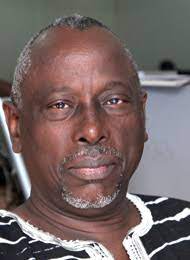Ask any Rwandan the word that has the most value for them, and the response will almost definitely be ‘agaciro’. The word means so many things at the same time. It is a state of being, a mindset, source of motivation, basis of identity, and embodiment of the national spirit.

Ask any Rwandan the word that has the most value for them, and the response will almost definitely be ‘agaciro’. The word means so many things at the same time. It is a state of being, a mindset, source of motivation, basis of identity, and embodiment of the national spirit.
It carries the very essence of renewal. Small wonder then that agaciro has become the unofficial national motto.Ask for the next most recognisable word used by leaders at all levels, and you are likely to get ‘transformation’.
This, like agaciro, has several levels of significance. Transformation, as used by Rwandans, carries a sense of aspiration. It is also an end and a means to that end.
This week, the word transformation was in the air. At the launch of the 2013/14 Integrated Household Living Conditions Survey (EICV by its French acronym), it was in evidence, certainly in figures.
We were told that the economy continued to grow at a steady 8%. Since 2001, GDP per capita has tripled, from US$211 to US$718. Agriculture, especially food crops, grew particularly fast, although poor nutrition persists.
Businesses and jobs also increased, especially in rural areas.
The result of this growth was a reduction in poverty and inequality. In less than ten years (2005/6 –2013/14) general poverty reduced from 56.7% to 39.1%, while extreme poverty fell from 35.8% to 16.3%. Again, the improvement was more remarkable in rural areas.
This is the measure of transformation we are used to – percentage increase of this or that, reduction by a certain factor in the other, improved ranking in this or that survey, and so on. The evidence is carried in various reports, rankings, indices and other statistics by experts.
These are what have earned us plaudits but also condemnation, both for doing right. In one sense, outsiders notice (sometimes grudgingly) that there are real efforts to change people’s lives, and a strong desire to do just that.
For instance, Grant Shapps, the British Minister for Foreign and Commonwealth Affairs who visited last week, said of Rwandans: "I was struck by their level of ambition and desire to push towards the future as quickly as possible.”
In another, we get condemned for doing right because that is not expected. A hint of this can be detected in the minister’s remarks as well.
Less seen, however, certainly by the experts, is the actual physical proof of this transformation in people’s lives in the villages and towns across the country. Behind the statistics and rankings, there are faces of real people, working hard to see that these changes take place. They are both the cause and the result of what the figures say.
Testimonies abound of individuals who have changed their status in a very remarkable way, and of how far we have come collectively as a nation. Indeed President Kagame noted at the launch of EICV report: "Today’s survey results confirm what we see around us and the stories we hear directly from Rwandans of all walks of life in visits around the country. You hear messages mainly of hope not desperation.”
The stories may be of a person who started off with no more than 10,000 francs and is now worth several million, a street vendor who has turned into a wholesale trader, a landless person who is now a large scale farmer, or a barefoot labourer who has become a transporter with a fleet of lorries.
The individuals you see match the stories. Their faces are brighter. There is a visible spring in their step. The voice is more confident and there is a readiness to say what they think and feel.
And so, for instance, a resident of a rural village in Nyanza can have the self-belief to ask the President of the Republic to satisfy his curiosity and confirm whether he will accept the people’s request and continue to lead the country.
These are things that cannot be learned or coached. They are the expression of transformed lives. They are the product of good politics and a secure, stable and predictable environment.
Sceptics and those who have made it a habit to deny Rwanda’s progress have always dismissed the progress reported in various surveys as only taking place in Kigali while the countryside continues to reel under the weight of untold poverty. Well, it now turns out Rwanda’s rural villages are changing faster.
Poverty is reducing faster there. More jobs are being created in rural areas faster. This is what the EICV statistics show. Transformation is happening, and as President Kagame said at the launch: "Good figures, like good people, don’t lie.”
One may add: the proof of good policies is in the quality of life of citizens. Want to check this out? Go to Rwanda’s villages.
jorwagatare@yahoo.co.uk


